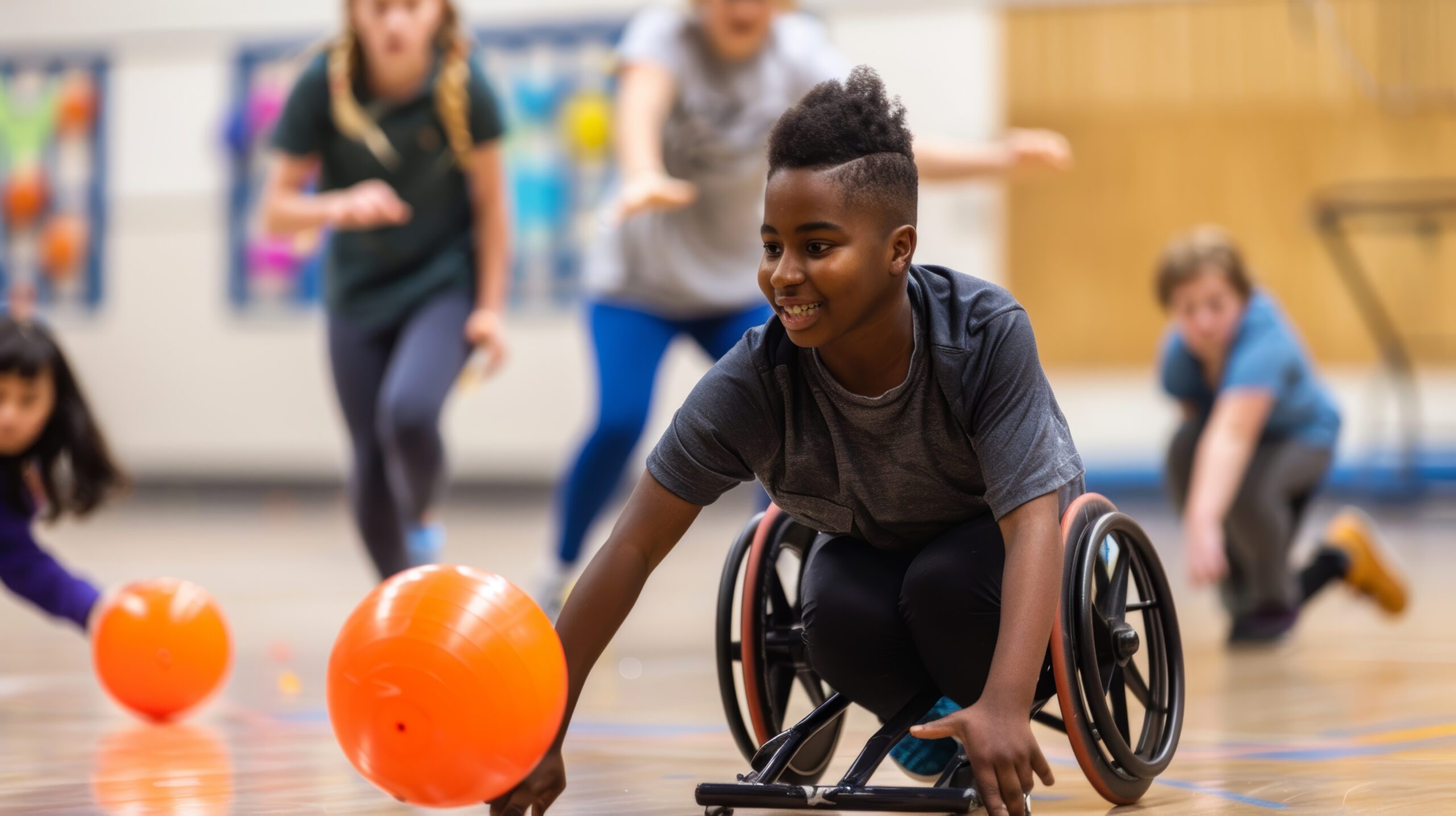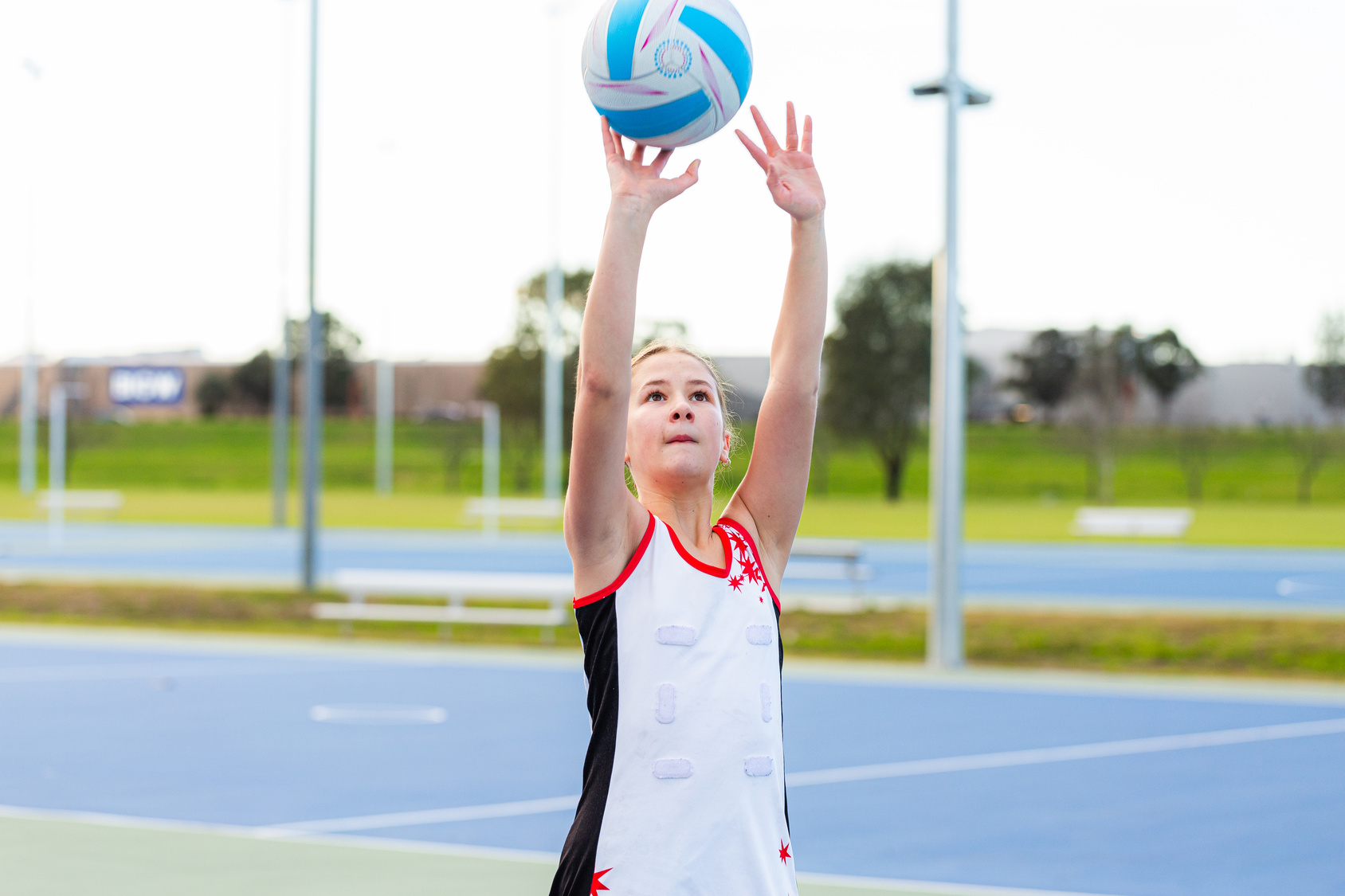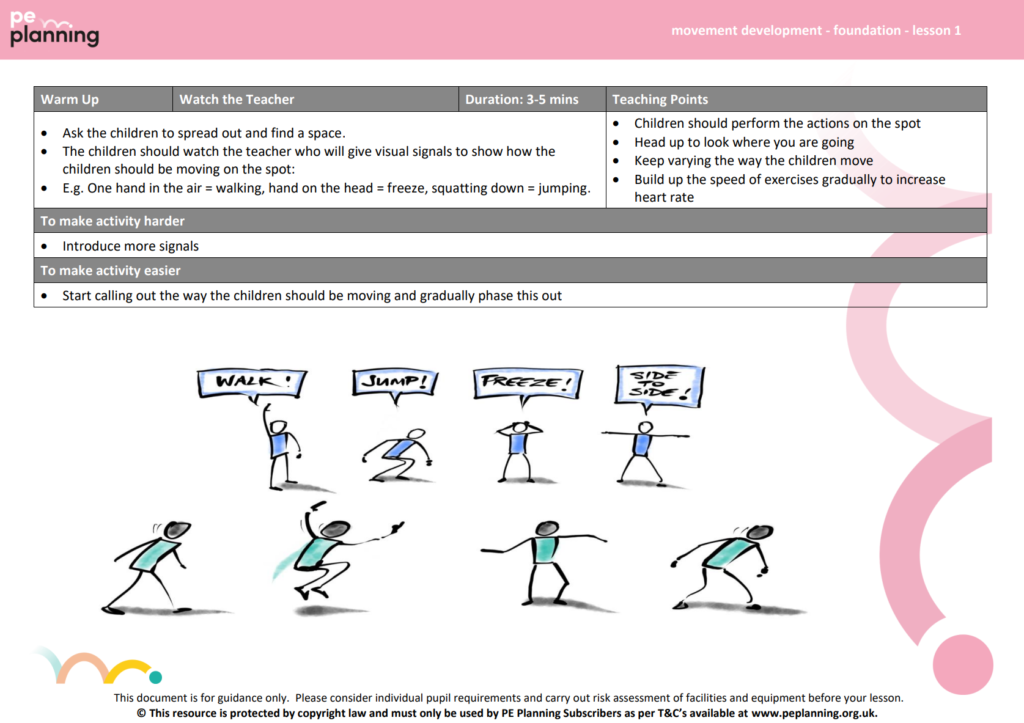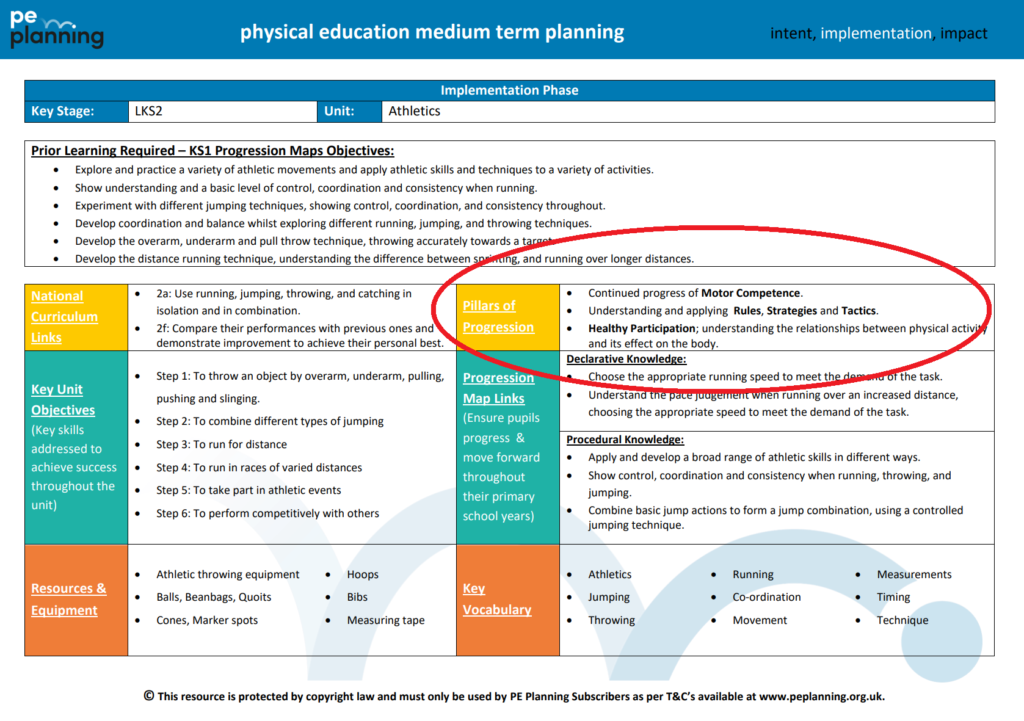Interpreting the Latest PE Curriculum Review
To reflect the outcomes and guidance of Ofsted’s recent curriculum review, we have reviewed and updated all of our curriculum resources. This includes our Intent, Implementation, and Impact documents as well as our actual lesson plans.

To reflect the outcomes and guidance of Ofsted’s recent curriculum review, we have reviewed and updated all of our PE curriculum resources. This includes our Intent, Implementation, and Impact documents as well as our actual lesson plans.
Now is a great time to review your PE Curriculum. But don’t worry, we have done most of the work for you!
PE is a huge subject and non-specialist teachers can find it daunting. However, Ofsted’s review provides useful direction in what should be prioritised at the different learning stages of school life.
In this blog we will offer our interpretation of the curriculum review, and show the updates that we have made in response to it. We do however, recommend you read the whole review for yourself.
Introduction
The review’s introduction offers an interesting view of how PE should be construed and the important role it plays in developing a child’s confidence. It emphasises the fact that high-quality PE is a physical and cultural entitlement for all pupils, regardless of their starting points.
The updates we have made in response to this:
Our lesson plans were already designed to meet the needs of all pupils. However, we have increased the amount of differentiation to help teachers consider the needs of all pupils. We have also added advice in our Assessment documents to help teachers identify More-Able pupils, and pupils behind their expected development.
Precious time being lost
The Association for PE recommends allocating 2 hours per week to PE. However, Ofsted research has discovered that precious time was being lost in getting changed and setting up.
Our opinion:
We understand that getting changed and taking responsibility of their clothes is an important learning element for Early Years children. However, we have found that schools who ask their pupils to come to school wearing their PE kit on PE day, gain so much more activity time (now more important than ever!).
The updates we have made in response to this:
We have reviewed and updated many of our warm ups to ensure our lessons are active and appropriate right from the start.
The importance of competence
The review states that it is not the expectation that PE is a path for elite athletes. PE alone does not have the time, resources or intent to do this. But PE can provide knowledge through instruction, practise and feedback for pupils to flourish within their phase.
In PE, developing competence is important because of its relationship with motivation and confidence.
The updates we have made in response to this:
We have added ‘individual pupil’ assessment grids to every Unit of Work to help teachers to consider the impact of their PE on each individual pupil.
The 3 Pillars of Progression in PE
The review suggests 3 conceptually distinctive but functionally connected pillars of progression that develop competence to participate. These are:
1a. Motor Competence
Motor Competence can be described as a persons ability to execute a variety of motor actions, including the coordination of fine and gross motor skills. These are necessary to participate in activities in everyday life, including play and physical activity.
For some pupils, PE will be their first and only experience of being taught how to produce confident and controlled motor movement. PE plays an important role in securing efficient and effective movement.
A confident and competent mover is more likely to be an active mover.
1b. Fundamental Movement Skills (FMS)
FMS form the building blocks for more complex movement skills. It can be argued that FMS are best developed between 3 and 8 years old. It is therefore important to develop a child’s FMS in the early years.
FMS can be subdivided into 3 sets of skills…
- Locomotor Skills – for example running and jumping
- Stability Skills – for example twisting and balancing
- Manipulation Skills – such as throwing and catching
Availability of equipment to develop these skills plays an important role, such as throwing and catching projectiles of different shapes and sizes.
The updates we have made in response to this:
This first ‘Pillar of Progression’ highlights the importance of our Foundation lesson plans. We have therefore updated all of these plans to ensure that Motor Competence and FMS are constantly and consistently delivered.

2. Rules, Strategies and Tactics
It is fair to say that Motor Competence and movement is vital. However, it is not enough to be competent alone. Intelligent movement requires pupils to move in accordance with the demands of the context. The review gives an example of a player passing a ball with power and direction, but if the pass is to the wrong person then it is ineffective.
Our opinion:
At Primary age, we feel it is wise to prioritise our focus on Motor Competence and FMS from Early Years to the end of Key Stage 1, then to broaden the learning up to incorporating Pillar 2. That isn’t to say that these children shouldn’t be introduced to Rules, Strategies and Tactics, it is important that pre-KS2 children understand basic principles of games such as following a set course in athletics or not kicking a netball, but at this stage, and with the short time we have for PE, it is more important to ensure our Early Years and KS1 children are developing their motor competences.
3. Healthy Participation
The National Curriculum refers to pupils leading healthy, active lives. This includes learning the importance of warming up and down, safe decisions (such as long-distance runners considering training intensity and rest), and developing their understanding of the relationships between physical activity and its effect on the body.
The updates we have made in response to this:
There are so many components to consider in PE. The 3 Pillars of Progression provide useful direction of what to prioritise when delivering primary school PE. Therefore, the pillars are prevalent in our Intent and Implementation documents, helping teachers to choose what areas to prioritise at the different stages of primary school life.

Vocabulary in PE
Ofsted consider PE to be a vocabulary-rich subject. A lack of shared understanding can be a barrier to participation. Therefore, carful planning of when and how key vocabulary is encountered is crucial.
It is important to carefully consider the most appropriate vocabulary and definitions, to check pupils’ understanding of key terminology and that these are taught with precise meaning within context.
The updates we have made in response to this:
We have reviewed and updated our Key Vocabulary. Each Unit of Work is accompanied with a bespoke ‘Implementation’ document which includes Key Vocabulary. These documents can be found on each lesson planning page. You can also download all Implementation sheets in one full document in our ‘Full PE Curriculum’ page.
Types of Knowledge – Declarative and Procedural
This is, what we feel, the defining difference between physical activity/sport and PE. The careful selection and systematic teaching of both declarative knowledge and procedural knowledge together underpins what it is to be physically educated.
Declarative Knowledge is ‘knowing what’ and is best practiced through spoken or written observations of a practical demonstration.
Procedural Knowledge is ‘knowing how’ and is best practiced through demonstration or participation.
Both forms of knowledge have individual value, yet are inextricably linked, particularly in PE.
The updates we have made in response to this:
We feel this is such an important aspect of high-quality PE. Therefore, we have adapted all our curriculum mapping documents to identify declarative and procedural knowledge in lessons, units, years… And throughout the whole of primary school life.
We have categorised objectives into declarative knowledge and procedural knowledge in our ‘implementation’ documents.
Additionally, we have introduced ‘knowledge checks’ into our full lesson plans to help teachers to assess and adapt their lessons according to the pupils learning.
And have altered our assessment grids so teachers can assess the knowledge (or Physical Education) of their pupils.
Reviewing your PE Curriculum
Just because a child has mastered a new skill in one sport, area or space, doesn’t mean they will naturally apply this skill in a different domain. Children therefore need time to practise and master the content being taught, and moving pupils too quickly into new contexts can reduce their fluency.
Our opinion:
We understand that schools should provide enrichment, particularly in areas of deprivation. However, it is important not to be unrealistically ambitious when setting a PE long term plan. With only 2 hours of PE per week, schools should consider the time given to pupils to practise and obtain competence. The review suggests that fewer sports, taught in more depth, can enable more pupils to develop competency.
A carefully sequenced curriculum (across school life, not just one year), is important. It is important that a long term plan is incrementally appropriate and progression of knowledge builds over time. We believe the pillars of progression provide excellent direction for a primary school PE leader to set their PE Curriculum.
Assessment
The review states that teachers should use a variety of types of assessment that enable pupils to demonstrate ‘what they know, understand and can do’.
Formative assessment should be ongoing in PE.
It is important to take the maturation of a child into account. For example, a tall child may perform a high jumper better than others, so it might be more appropriate to measure jump heights relative to pupil height, or to measure improvement of an individual’s distance over time.
The updates we have made in response to this:
We have completely restructured our assessment grids. Learning objectives have been categorised into Declarative Knowledge and Procedural Knowledge to help teachers identify pupils’ knowledge of ‘what’ and knowledge of ‘how’.
We have also added ‘individual pupil’ assessment grids to every Unit of Work to help teachers to consider the impact of their PE on each individual pupil, not just the whole class.
Conclusion
The review provides an interesting insight into what Ofsted consider PE to be. Plus, how it should be structured, the types of knowledge required and how we should assess our pupils.
Those of us old enough to remember the old curriculum, with its strands of ‘knowledge and understanding’, ‘acquire and develop’ and ‘health & fitness’ might feel a sense of deja vu when reading the new terminology such as ‘knowledge’ and ‘healthy participation’. But after thoroughly reading the review, there are distinct differences.
Highlights of the review for us are the pillars of progression and the types of knowledge:
The pillars of progression help to structure a PE Curriculum incrementally and appropriately. As primary PE specialists, we completely agree with the emphasis that Ofsted have placed on Motor Competence, particularly at Early Years and Key Stage 1. We believe our updated Foundation Plans perfectly adhere to the requirements of the PE Curriculum, developing Motor Competence throughout the early years of education.
The introduction of Declarative Knowledge and Procedural Knowledge has clarified what teachers should be focussing on in a topic as broad as PE. We have incorporated both knowledge types in all our curriculum mapping documents and lesson plans.
It has been a tough old task! But we are truly grateful for this review and delighted with the impact it has made on all our resources. We hope that we have eased the workload for our members. We are confident, too, that schools using our PE resources will have everything required to deliver a high-quality and up-to-date PE Curriculum.
As always, we are here to help. If you have any questions, we’d love to hear from you.




